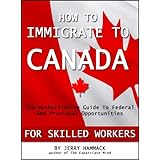Those of you in the family class of immigration should be aware of a change to Canadian immigration laws that have now created two classes of permanent residency for this classification.
Citizenship and Immigration Canada (CIC) introduced amendments to the Immigration and Refugee Protection Regulations (the Regulations) which apply to spouses, common-law or conjugal partners in a relationship of two years or less with their sponsor and who have no children in common with their sponsor at the time they submit their sponsorship application.
The sponsored spouse must cohabit in a legitimate relationship with their sponsor for two years from the day on which they receive their permanent resident status in Canada. If they do not remain in the relationship, the sponsored spouse’s status could be revoked. The conditional measure only applies to permanent residents whose applications are received on or after October 25, 2012—the day that the amendments came into force.
There are exceptions to this rule based on situations of spousal abuse, or in the case of the death of the sponsor.
Aside from the need to satisfy the two-year requirement, conditional permanent residence does not differ from normal permanent residence. These sponsored spouses have access to the same rights and benefits as other permanent residents. They will be allowed to work and study without a work or study permit; they will not be subject to different tuition fees in post-secondary schools; and they will have the same access to health coverage and social benefits, including social security (or income support).
If the conditions above do not apply to your situation, then you will be granted full permanent residence status when you finish the immigration process successfully, without the conditional status.
This amendment was created to fight immigration fraud, and you can't blame the government for attempting to stem any abuses of the family class. Legitimate families know how tough it is to immigrate to Canada. New families will just have to be patient when it comes to assuring the government they are legitimate.
Citizenship and Immigration Canada (CIC) introduced amendments to the Immigration and Refugee Protection Regulations (the Regulations) which apply to spouses, common-law or conjugal partners in a relationship of two years or less with their sponsor and who have no children in common with their sponsor at the time they submit their sponsorship application.
The sponsored spouse must cohabit in a legitimate relationship with their sponsor for two years from the day on which they receive their permanent resident status in Canada. If they do not remain in the relationship, the sponsored spouse’s status could be revoked. The conditional measure only applies to permanent residents whose applications are received on or after October 25, 2012—the day that the amendments came into force.
There are exceptions to this rule based on situations of spousal abuse, or in the case of the death of the sponsor.
Aside from the need to satisfy the two-year requirement, conditional permanent residence does not differ from normal permanent residence. These sponsored spouses have access to the same rights and benefits as other permanent residents. They will be allowed to work and study without a work or study permit; they will not be subject to different tuition fees in post-secondary schools; and they will have the same access to health coverage and social benefits, including social security (or income support).
If the conditions above do not apply to your situation, then you will be granted full permanent residence status when you finish the immigration process successfully, without the conditional status.
This amendment was created to fight immigration fraud, and you can't blame the government for attempting to stem any abuses of the family class. Legitimate families know how tough it is to immigrate to Canada. New families will just have to be patient when it comes to assuring the government they are legitimate.


No comments:
Post a Comment